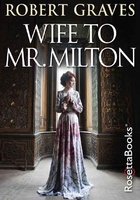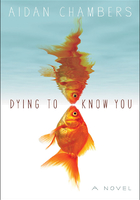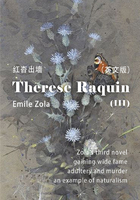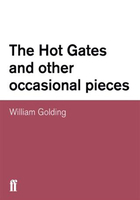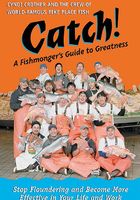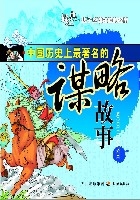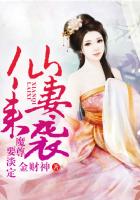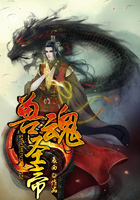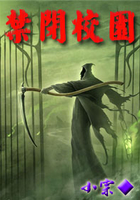The genesis of this book has been peculiar and its aim in doubt. For the last sixty years I must have read every popular book that anyone ever wrote about Egypt. In common with my generation I found a deep and so to say natural attachment to things not so much just Egyptian as Ancient Egyptian. Perhaps for us all, the supposed immobility of ancient Egypt stood over against the change which is the experience of daily life. This was not quite a yearning for a lost paradise but it was certainly a yearning for something or other. Perhaps we could divide the children of that generation into those who read Conan Doyle for choice and those who read Rider Haggard. The concept is attractive. You can, by falsifying the nature of both men somewhat, put them at opposite ends of a spectrum. On the one hand, we have the creator of that egotistical male, Sherlock Holmes, and on the other hand we have the creator of She Who Must Be Obeyed. Here we have set up as an ultimate the logic of deduction, there we have Mystics Who Know and do not Need To Reason. And so on. It would not do, of course, for Conan Doyle was the one who ended up looking at photographs of little girls in Art Nouveau costumes and believing they were fairies. We may be simplistic but life isn't. Nevertheless there was in the two men a tendency towards one rather than the other of two worlds.
Haggard, of course, was hooked on the mystery of Darkest Afric. Of this mystery Egyptian history was no more than an extension. His novels The Moon of Israel, The World's Desire and Cleopatra either imported or recognized what was implied in our view of ancient Egypt – the mystery of magic, the presence of gods, the power of a priesthood, the attraction of ancientry, the glamour of kingship. Then into this partly realized connection between us and them was stirred a catalyst, the excitement, the hullabaloo, the world interest of Tutankhamun's tomb.
Now though I read Conan Doyle when he came my way, I did not buy him and I did not borrow him even from the library. But on Haggard I would spend my all, walk miles for one of his books, read and reread without end. I still think he has scenes of an overwhelming power. C. G. Jung, in the days when not just a diminishing group of addicts but everyone took him seriously seemed to give Haggard a validation. He cited She Who Must Be Obeyed as the archetype of the Anima.
But to us as children and adolescents what was Egypt to be? The young Farouk was to be seen on a stamp, unlikely looking heir of the pharaohs. There was the administration of Egypt by Great Britain, such a benefit to the place. There were the papyri. There were the biblical connections. There were in every museum some of the anthropomorphic, the mummiform coffins that stared at us with all the awesomeness of death, magic, terror, mystery. Yet the official source of all our views of ancient Egypt came by way of archeologists who were just beginning to use science and adopt a wholly rational approach to it – science and rationalism in the service of magic and mystery! It was a great confusion.
My childhood's stance, then, was romantic though terrified, even a bit religious though pagan. Mummies, the mere thought of mummies, put ice on my skin, but at the same time I could more readily believe in Ra, Isis and Osiris than in the Trinity. To me the contradictions of Egyptian beliefs were not implausible; or rather, since they were religious beliefs, contradictions were just what I had come to expect.
Yet all the time, as far as the adult world was concerned my preoccupations were with the rationally explored and logically treated discoveries of scientific archeology! This was a tension of which I was only partly aware and which died a natural death as I grew older and was more caught up in life and love around me than in an imaginative dialogue with death and magic.
And yet – !
It would be going too far to say that I felt myself to be an ancient Egyptian. But I felt a connection, an unusual sympathy. It became, absurdly enough, a feeling of responsibility as if I owed the country something though I had never been there. There is even the possibility that this book is an unsuccessful attempt to pay that debt.
So there remained a link with ancient Egypt in me until past my middle years. It was only then – and about ten years before the publication of this book – that my wife and I made our first visit to Egypt. Why so late? At any time in the previous twenty years we could have gone. But there had turned out to be so many interesting things to do, so many other countries to visit, such boats to sail, such money, such reputation to be chased….
Nevertheless, at last go we did and I found that the Egypt of the mind simply did not exist. I had to rearrange everything. Egypt was more – much more! Even the archeologists were not what I had supposed. For instead of being the rational creatures I had anticipated they were as crazily imaginative and as well disposed to the Mystery as any child could have wished sixty years earlier. When, for example, the question arose of a dear lady who believed herself to have been a priestess of a particular temple, they did not dismiss her as a crackpot but agreed that she had something.
Then – well, a year ago – I was approached and asked to write a book on Egypt. The prospect of another visit to Egypt but this time with a Minder who spoke the language (what our Victorian forebears would have called a 'courier') was attractive. But I had no particular view, had no axe to grind, had read widely but not deeply. I pointed out to the publishers that the book could not be authoritative. To my surprise they were aware of this. It was to be, I found, a book about me as much as about Egypt. It would contain photographs, mostly photographs of the country but some of me.
This seemed to be the perfect assignment. We discussed methods. I had an idea which seemed plausible. The last time my wife and I had been in Egypt the greatest difficulty and danger we had faced was to get rooms in hotels. I was, or had been, a sailor. I sailed in my youth, spent the war years in the navy, some of them in command, spent more years after the war teaching sea cadets to sail. After that I sailed my own boat on the north coast of Europe and topped the lot off as unpaid hand in my son's canal boat. Then why not hire a boat, a yacht on which we could live, proceeding up and down the Nile, stopping off at such places of interest as Oxyrhynchus and Abydos; and mingling light-heartedly with live Egyptians instead of dead ones. For during our previous visit I had come to a simple truth; that Egypt is a complex country of more-or-less Arab culture and it is outrageous for the uninformed visitor to confine himself to dead Egyptians while the strange life of the valley and the desert goes on all round him. The tourist (and I was not quite that) who has limited time and money may well confine himself to the monuments of Pharaonic Egypt. For us, handsomely supported as we were and able to take what time we chose, it would have been an insult.
I flew out to Egypt for forty-eight hours to find a boat. In this I was not so much helped as carried by the young Egyptian gentleman, Mr Alaa Swafe, who was to be our Minder. There were very few boats available. The concept of private persons travelling on the Nile in a hired boat and not as one of a tour was, if not new, at least unusual. We searched the waterfront at Cairo with growing despair. I quote from my journal.
The boats were awful. There weren't many of them. Perhaps Alex would have been a better place but I had some delusion that Cairo would have river boats. I suppose some vague picture of possible luxury was floating about at the back of my mind. 'The barge she sat in' and all that. But the boats were either plastic skimming dishes or rotting old houseboats where the decaying curtains were pulled apart by their own weight and carpets under foot squelched with water from the bilge. The hire price averages £250 (E) a day.
I had a gloomy lunch with our bilingual Minder. 'There's one boat left,' he said at last. 'It's up river a mile or two at Ma'adi. I don't even know if she's for hire.'
Of course that was the one we hired finally. She belonged to Dr Hamdi and we came to an arrangement. The boat (named Hani after Dr Hamdi's son) looked a bit more solid than the skimming dishes [see plate]. She wasn't over-engined as they tended to be. There was a central space containing the galley and a console of controls. There were two cabins with four berths in each. There was a fo'c'sle for two. There were also two toilets, or 'heads' in naval parlance. If my account were to be relentlessly factual those heads would loom as large and important as any Egyptian ruin that ever was. But at first sight they seemed all right. After all, I thought, if anything nasty happens – it always does in boats – we could get out and walk or take a train.
I flew back to England a few hours after I had left it. I was immediately caught up in a whirlwind of controversies, interviews, parties and publications which I need not go into here. But Egypt and the boat and the book became more and more uneasily part of a twingeing background. As the days slid away and the fact that we were actually going came nearer and nearer I was overcome with a feeling of sheer folly. I was seventy-two. I did not need the money. I had awful memories of dirt and helplessness. Yet here I was engaged to fill an as yet empty book. Determinedly then I set to and planned what I would do. I should expand the experience of Egypt beyond the valley – visit the Red Sea coast – try to get there through the desert, the Desert, the DESERT! It was a breath-stopping concept. I rummaged among my books.
… Where the soldier of a hundred years ago was buttoned up tightly in thick uniform, the modern resident of Egypt seeking comfort wears thin white cotton or silk clothing, consisting of shirt, trousers and jacket, white canvas boots with thick soles and a light but inch-thick pith sun-helmet, possibly with a further protection against the sun in the form of a spine-pad inside the jacket. The only vulnerable spot is then the eye….
Well, I knew better than that, at least. Also we had thoughtfully decided to go in February when on the one hand we should benefit from the mild Egyptian winter and on the other miss at least some of the fierce English one. We should come back when the flowers were in bud and the cuckoo cucking.
Then I fell sick and the date of departure moved on me through a maze of more interviews, sittings, doctors, parties meant to honour but sources of desperate strain. During increasingly wakeful nights I began to plan ahead, feverishly. Preface? I would have no preface, thus saving time, money and exertion. I would have no index because – well, because it wasn't going to be that kind of book so out with the index! After that, the bibliography might as well go too and for what I consider a plausible reason. This was literally journalism and journalists protect their sources. Farewell then Gilson, Major Charles, and Balls, Mr W. Lawrence, adieu Maspero, Professor Gaston Camille, and Gautier, M. Theophile – I wrote a list of subjects and I decided precisely how I would treat each. Really, I was planning to write the book without needing to go to Egypt at all. Confused, more and more convinced that I should find too little to write about, I saw myself creating most moving soliloquies in the desert, particularly in the more neglected sites. Bending down, I would detect, sticking out of sand the corner of a roll of papyrus – or pretend I had detected.
The day of departure came inexorably. We took far too much clothing in three large suitcases. We took too few books. I was obsessed with the horrors of Cairo Airport. I could not find Plutarch's account of the story of Isis and Osiris and this seemed a disaster. For I felt I should not be able to verify certain quotations. When fit and well I don't verify quotations. However good and beautiful a phrase or sentence may be in its original place, the unverified version has an additional beauty which it derives through tumbling about for a generation or two in the mind. Moreover an unverified quotation is always apter to the new context than the original stuff would be by reason of a nice derangement of epitaphs which is the operation of the unconscious, holy be its name! Yet now I feared to make a mistake and must therefore have been really sick. Then again, there were the sixty photographs with which the book was to be littered and thickened. I had never been in the position of writing a book which would be illustrated with photographs and did not know what I was supposed to do about it. Would someone photograph what I had written? Should I write about what had been photographed? Should we ever meet? Ought we not do the thing together? Would it not be better – a seductive thought, this one – to leave all the writing until the photographer had finished? Would it not be better if I confessed to the frivolity attendant on the advance of old age?
We landed and passed through the 'horrors' of Cairo Airport in five minutes flat. We were wafted. Our Minder met us and drove us straight to the Sheraton in Giza.
All the same, when he left us, the complex of minor irritants that Egypt provides you with even in the most luxurious surroundings presented itself again. The traffic was thicker than before and even more hysterical. Even with the double-glazing of our room we suffered once more that whining, parping, screeching, howling disharmony which is the background to life in Cairo. Neither of us could come by sleep. Perhaps we tried too hard. The traffic, oh the traffic! It was like a fever. There is a period, and only one, lasting about an hour in the early morning when the noises cease as if something has been turned off. With common and unspoken consent we got out of our beds, opened the French windows on to our balcony and stood looking down at the Nile where it glimmered among the high-rise buildings. The corniche that lay beside it and beneath us was empty. Then a solitary little red car came along the corniche and it was parping fretfully.
'He's lonely,' said Ann. 'He can't stand the silence.' The car passed below us still parping in the direction of the pyramids. Faintly from over on the island of Zamalik a voice began to cry. It was a muezzin. Soon his voice was joined by others.
'Remember?' Once we stayed in a hotel on Zamalik. The concourse or rather convocation of muezzins had not annoyed me but brought on a fit of piety. I had got out of bed and tried to write down my impressions. Now I carefully closed the French windows on them.
'We shan't be bothered with muezzins where we're going. I've decided we'll tie up by the bank in deep country. We'll see towns during the day and press on during the evenings. Of course, when we have tied up alongside we may very well be able to stroll about in waterfront villages before we turn in….'
'Bed.'
I suppose we got a bit of sleep before next day. We spent most of the morning turning three suitcases into two. After that, we went to have a quick preliminary look at the boat which Ann had not yet seen. She lay alongside a pontoon that was reached by a catwalk. We did not stay long since there were a number of apparently shy persons who stood up when we came near and then sat down again. Nor did we go on board but stood on the pontoon and looked at Hani as wisely as we could. She had been cared for. She looked clean. All the same a young man in a blue tracksuit picked out with white stars and wearing a close, blue turban was cleaning her with the frenetic energy of someone working under the immediate eyes of the boss. I felt for him and smiled but he did not notice. He simply went on polishing the mahogany trim – a redundant activity for it already shone under the chilly February sun.
Somehow it seemed improper to go on board, as if we were not yet entitled. More than that, I found myself becoming more and more incredulous of the fact that we were actually going to put ourselves, at our age, into a boat again and allow some strange people whose language we did not speak to convoy us. We came away and the strangeness of the circumstances seemed emphasized by a most extraordinary tree. It was average size for a tree but the flowers were enormous. It was only after close examination and a few double takes that we realized we were looking at our first banana tree in bloom. The farce of the situation seemed emblematic. I dare say if you look you can find a banana tree in bloom at Kew. Then we went back to the hotel and prepared for our evening party by spending the afternoon in bed.
At Dr Hamdi's sumptuous flat we were shown photographs of reclamation work and we were video'd. We met various police who were active in various Middle Eastern countries. We met some teachers, school and university. It was at this party that our Minder and Dr Hamdi discovered that they were not too remotely related. Dr Hamdi made it clear (in order I suppose to relieve me of any feeling of responsibility) that our Minder Alaa Swafe, was in charge of the boat. This put me in the position of being a passenger, a position in a small boat to which I was not accustomed. Still, there was no denying that without Arabic I should not have been able to take charge of the boat in a proper manner. In any case I had to accept the position whether I wanted to or no.
Next morning we were taken with our suitcases to the boat again. Our Minder had hired us a cook and he turned up, carrying a lute. I asked our Minder if, since he was responsible for Hani, he knew anything about boats. No, he said, with what I hoped was modesty, nothing at all. It all seemed a bit surreal. The crew consisted, then, of one engineer, one cleaner, one cook with lute and the reis. Our Minder, Alaa, told us that Shasli was a reis – Reis Shasli – and to be addressed as such. Reis was a dignity he stood on. It didn't mean 'captain'. It meant 'Foreman of these circumstances'. But a crew of four to handle a boat not as big as one I had once owned and sailed! I looked at them and they seemed to avoid my eye – or did I avoid theirs? I strolled away, leaving Ann to talk to Alaa and pretended to examine the banana tree. But really I was remembering a painful quotation from one of the books I had not brought with me.
… English go their way … with their habit of looking 'through' persons who do not interest them, and of waiting for friendship rather than going to seek it … the British are the most foreign of all the foreigners in Egypt … prevented … by their temperament from assimilating themselves to the life of the country….
It was true. I could feel a lifelong experience of being a particular sort of Englishman building up in me like a wall. It was more impervious than a wall of language. It was assumption and custom. And I was the one who had hoped that my book would not be about temples but about people!
I turned back to the boat. The crew had gone aboard. Alaa and Ann were talking animatedly. Near them was a frail old Nubian, black and crumpled, in jeans, grey jersey and close turban, messing tremulously with ropes. He had a dazzling white moustache but looked strangely sullen behind it. Dr Hamdi, his son and charming wife turned up together with the females of Alaa's apparently extended family. It was a scene of much animation and reminded me of such pictures as The Departure of Christopher Columbus for the New World. We said our farewells and went bravely aboard. Reis Shasli, a slight figure in grey galabia and large, grey turban ascended to the glass box which housed our wheel and slave controls. His face was black as the Nubian's. It was well enough featured but mud-coloured from heredity and exposure. Our engineer, a sophisticated man in western dress and with a Ronald Colman moustache was busy over the engine in the centre compartment. The cook had stowed his lute and was in the galley. Shasli started the engine. The Nubian cast off ropes, the audience waved and took photographs.
The Nubian clambered aboard as we moved away from the pontoon.
Crew of five.
The main thing was to get away. We stayed on deck, waving and shouting absurdities and not understanding the replies. Presently a gaggle of yachts at anchor hid the pontoon and we could be said to have started. Ma'adi is a nondescript suburb of Cairo. We left it and the high rise area of the city behind us at 11 o'clock. Industry clusters by the water and the suburbs stretch south for miles. It was cold and the river Nile, most famous, most exotic of rivers, was about the same size as the Thames by Tower Bridge and the same colour. The adverse current meant that we made little headway – surprisingly little since the boat was allegedly capable of eleven knots. We were using no more than five of them from which the adverse current subtracted one. There was nothing about the scene to distinguish it from any river scene in any city. The pyramids, of course, were hidden by buildings. The grey, poppling water and the occasional barges were too matter-of-fact for description. Reis Shasli didn't steer straight up the river and I thought at first that he might be following a winding channel, but no. He went from boatyard to boatyard, zigzagging from one bank to the other, each time hollering to a chum on shore. I thought at first he was showing off his splendid command, but in fact he was wanting to borrow a bit of rope and a thingummybob, a machin, a what d'you call it. He was – is – steersman of one of the Nile tourist boats and only allowed to hire himself out to us because his own boat was being refitted. We went below to look at our cabin. Ann discovered at once that there was no hanging space for clothes, something I had not noticed when I hired the boat. I tended after that to avoid catching her eye. We put up the upper bunks and used them for stowage of clothes (of which we clearly had too many). I pretended to find this just as convenient as drawers and cupboards but deceived neither of us. I didn't like the look of our lavatory, toilet, loo, heads, admiral, either. The bore looked small to me.
Reis Shasli brought us alongside a floating restaurant and went aboard it. Presently, staring through our windows (they were too large to be called ports), I saw him coming back with the old Nubian, who was carrying a grapnel. So we had had no anchor either! I saw no more of them for the young man, Faroz, in his blue tracksuit, started to clean the outside of the window six inches from my face. Shasli took us back into midstream.
We wrapped up even more warmly and went on deck and stood, chillily in the cold north wind. On the left, a mountain of white stone lay perhaps half a mile from the eastern bank of the river. There was much machinery, smoke and clouds of dust. This was Tura with its quarry for fine limestone. Chephren faced his pyramid with it, all blinding white. Five thousand years of quarrying had put half a mile between the mountain and the river. It was something to have seen after all and consolation for not being able to see the pyramids from the river. After Tura the banks became a bit more countrified and even Egyptian. There were plantations of date palms and lines of delicate green trees – tamarisks, I think. We passed a huge dovecote built in the distinctively Egyptian manner, massive mud walls then domes and minarets with niches for nesting. There were donkeys, untethered and grazing on the bank where it was clear of reeds. It seemed odd to see a donkey doing what it liked and not laden to death [see plate]. But this was February, the Egyptian winter, and a relatively lazy time for man and beast, unless your business happened to be with the water traffic or you were a woman. The Nile was very low and women were washing clothes on the mud beaches. A solitary man moulded mud brick and women processed up the bank with huge water jugs on their heads. The palms, I thought, looked like bottle brushes – but then did I know what bottle brushes looked like? Here and there brickyards or brickfields obtruded most rawly into the Nile with great screes of red fragments. There were sailing boats moored alongside the screes taking in loads of red brick. Rarely the interruption to the mud bank was not red brick but stone foundations of some vanished building which might have been any age.
Then, in broad daylight – with hours of daylight left – we tied up to an open sailing boat that was moored next to a whole mountain of straw pecked over by pigeons and rat-rustled. The straw, being in a brickyard, was, I supposed, the stuff which Pharaoh wouldn't give the Hebrews. As far as I was concerned (and the rats poked out their noses or rustled invisibly) anyone could have had it.
The first bad news of the journey filtered through to us. The boat carried neither sheets nor blankets. Alaa and the cook, Rushdie, scrambled ashore over the sailing boat and rustling straw and went to find a place where they could buy what was necessary. The crew evaporated. Fish jumped round the boat. The wind blew. A pulley block tapped the mast of the sailing boat, tap, tap, tap for ever. Dusk approached quickly. The sky was covered with high cloud and it was cold.
Alaa came back with sheets and blankets. The crew materialized and music, Arab music, resounded from a loudspeaker. It was nearly 6 o'clock and sunset. We have, I said to Alaa, a few more hours of the evening in which we can make more distance. This remark was translated to the Reis. It stopped the music, stopped conversation, even seemed to stop the block tapping, or perhaps it only stopped the wind. The answer to my remark filtered back to me. Nobody uses the Nile after dark.
Then why, I asked, have we those little green and red navigation lights up forrard? This piece of expert knowledge created a pause. But once more an answer came filtering back. Nobody uses the Nile after dark. You have to have permits, which can only be got back in Cairo. There are regulations. The river is low. There will be trouble.
Everyone was smiling in a friendly manner. It was an Egyptian smile. I had seen it many times on statues but now for the first time I understood it. We should only move between the hours of six in the morning and six in the evening. There was no question of working watch and watch.
In that case, I said, we would start sharp at 6 o'clock in the morning. The answer filtered back again. We would start as soon as possible but there might be fog.
Fog.
Fog, the seaman's bane was the captain's friend. I envisaged him lying in while the early sun dried up a trace of mist, which had lain, but penetrably, about the banks.
Well, there was nothing to be done. Once, I remembered, an old lady told me about her young brother, a midshipman. He boarded a slaver in the gulf while his gunboat rushed off to chase another dhow. He was unarmed. He drew a chalk line across the deck and forbade the slavers to cross it. (Provenance of chalk not stated.) Hour after hour he paced the chalk line until his gunboat came back and arrested everybody. Aye me!
No, there was nothing to be done. The generator and the lights started up and the music. I was informed by a smiling Reis that we had come seventy-five kilometres.
After some time the generator stopped and the lights dimmed as the music faded. Presently light and sound faded right away. The block tapped.
I lay on my bunk, fully dressed, wrapped in a sheet and blanket, my head, since we had no pillows, on a rolled-up raincoat. Across the cabin Ann shivered a little under a whole heap of clothes.
It seemed that I would never get to sleep. I began to reflect glumly on the inadequacy and incompetence of my approach to this business of finding out about Egypt.
My childish approach had been replaced gradually by an adult one which had become more and more complicated. It was not just an inability to meet people, it was a question of the inward eye. My whole imaginative concept of the country had changed because of the explosion of knowledge, not just about ancient Egypt or even modern Egypt but about what might be called geological Egypt. All the way up the Nile valley there had been made, I knew, boreholes for water; and, of course, there had been much exploration not just for ores or water but for oil as well. In addition, the massive evidence for plate tectonics and continental drift had put the northeast corner of the African land mass firmly into a more general picture. My imagined Egypt (the one which would have to go into the book) now included this majestic history, which by its very nature was difficult to assimilate into the more limited human story, even when that was stretched to take in the successive changes in the nature of Homo sapiens himself. It was a question not of thousands but of millions of years which conditioned the imagination. I knew now, as I had never known when I was a child, that there had not been just one Nile in this valley but five Niles successively. By the standards of some of them our present Nile was no more than a trickle. But to exercise that geological imagination it was necessary to see through the surface, to turn back, as it were, successive blankets on a bed of rock and to realize vividly – poetically – that this was a place like any other, welded into the total nature of the planet and an expression of it.
Stars shivered at me through a gap between the curtains which covered the window behind my head. They were piercing stars and emphasized the major history over the minor one. The fifth Nile clucked occasionally under our bilge.
This was my ludicrous problem. In imagination I had filled something like the Grand Canyon, only larger, with evaporites, boulders, crags, fossils, gravel, sand, clay and mud so that its cliffy sides projected from the rest no more than a few hundred feet – and that was now my Egypt, impossible to gather into a simple picture. The canyon was no plausible guess. Echo-soundings and drillings have mapped it all. The time scale which used to stretch over ten thousand years must now be stretched to cover ten million. The story of Man himself, it seems, has occupied at most no more than half of that. We must adjust ourselves to time scales that differ by a factor of a thousand.
I thought of the famous statues that now illustrated both scales so that a man needed an impossible depth of imaginative focus to appreciate both aspects at the same time. There were, I seemed to remember, worked stones from temples which included a fossil by accident. Even without the fossil the type of stone was significant and evocative. The archaic figure of Zoser in the Cairo Museum takes us into the inconceivably distant (on one scale) past of nearly 3000 BC. We feel that, and are perhaps awed by it. But our other eye, other focal length, must recognize that it was made with stone from Tura, that mountain of fine, white limestone we had passed earlier in the day, and multiply the time if not the awe by a thousand.
I was warm enough now, but my bald head was cold. I felt round in the dark and found my floppy sun-hat, crushed it over my head and waited for the heat of imagination to be useful for once.
I remembered an incident that happened to me years before across the river, at Aswan. I was up by the tombs on the fringe of the Western Desert. I saw, lying in a ditch near them, an ancient maul. This was a lump of stone, rounded so that it could be held with reasonable comfort in one hand. It was the earliest of all stoneworking implements. All you did was to pound persistently at a slightly softer rock until it crumbled away. The day before I had seen the results brilliantly illustrated in the unfinished obelisk on the other side of the river. There I had inspected the wavy surface of stone which had been worn away by this method and marvelled at the length of time the workers must have spent, prone or supine, pounding unhandily at the bottom of the object to undercut it. They had failed to complete the obelisk because it had split from a flaw not at first detected. But they had succeeded in leaving behind them an object lesson in the powers of persistence and elementary sculptural technique. Now here on the other side of the river and at my feet was an example of the primitive tool. Facing me was an outcrop of the same stone as they had pounded into the near shape of an obelisk. The rock was red Aswan granite. There must be few major museums which do not preserve a specimen or two. In the British Museum, for example, the huge head and forearm of Sesostris are fashioned from it. Experimentally, then, I lifted the maul and examined it closely. There were no visible marks on the surface. But then, why should there be? You can scratch a steel knife with a diamond, which remains unaffected. This stone was dolerite from the shores of the Red Sea and twice as hard as granite. I began to pound solemnly at the red Aswan granite of the outcrop. To my surprise it cut easily. Before I tired I cut a groove a foot long and half an inch deep. Of course, near the surface even granite will have undergone a delicate chemical change on the road which will (after a few million years) rot it down to kaolin. Nevertheless, even after I had penetrated this skin I went far enough down to find that virgin rock was workable. How was one to cope with such an experience? To me, it was delightful and significant – but of what? There was the knowledge that the granite was a geological event in one time scale, that the dolerite maul was in the same time scale but a different event. There was (coming down to the other time scale) an attempt at imaginative identification or empathy with the workmen, fellaheen, slaves who had fashioned this primitive implement some five thousand years before.
What I am trying to convey is the confusion of a lifelong relationship. I needed to find a centre to knowledge so wide yet superficial and a treatment which could contrive to be comprehensive without falling into the jejune. I could only see that the cohesive element would have to be my own individual experience and the impact of disparate and dissimilar phenomena on my particular sensibility.
My head was warm, not to say hot. Huddled under my heap of clothing, with one star glittering past the curtain, I lay, feeling that if anything, my head was now steaming. I had an illogical feeling that something had been accomplished. I must have slept.

